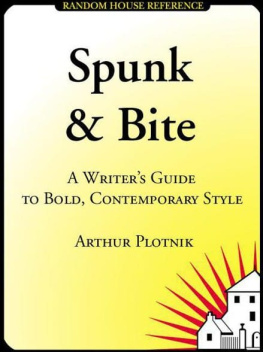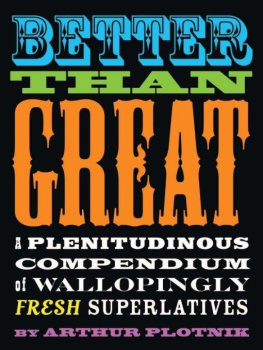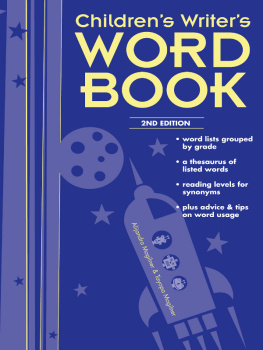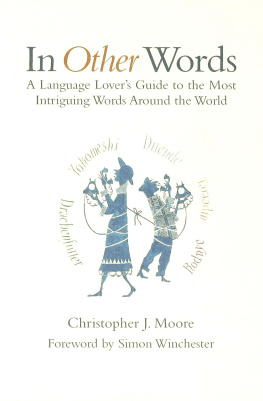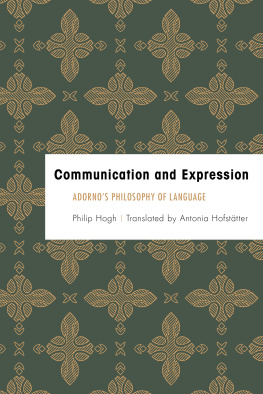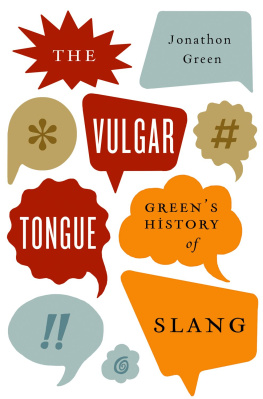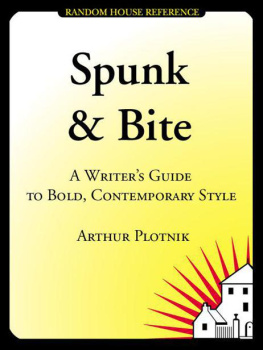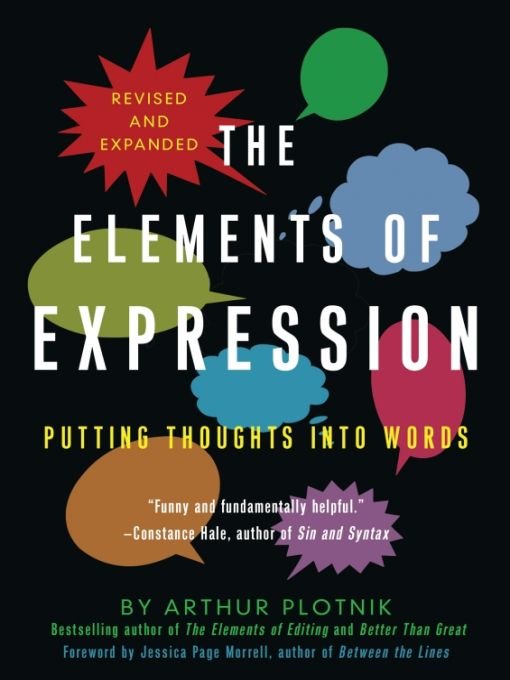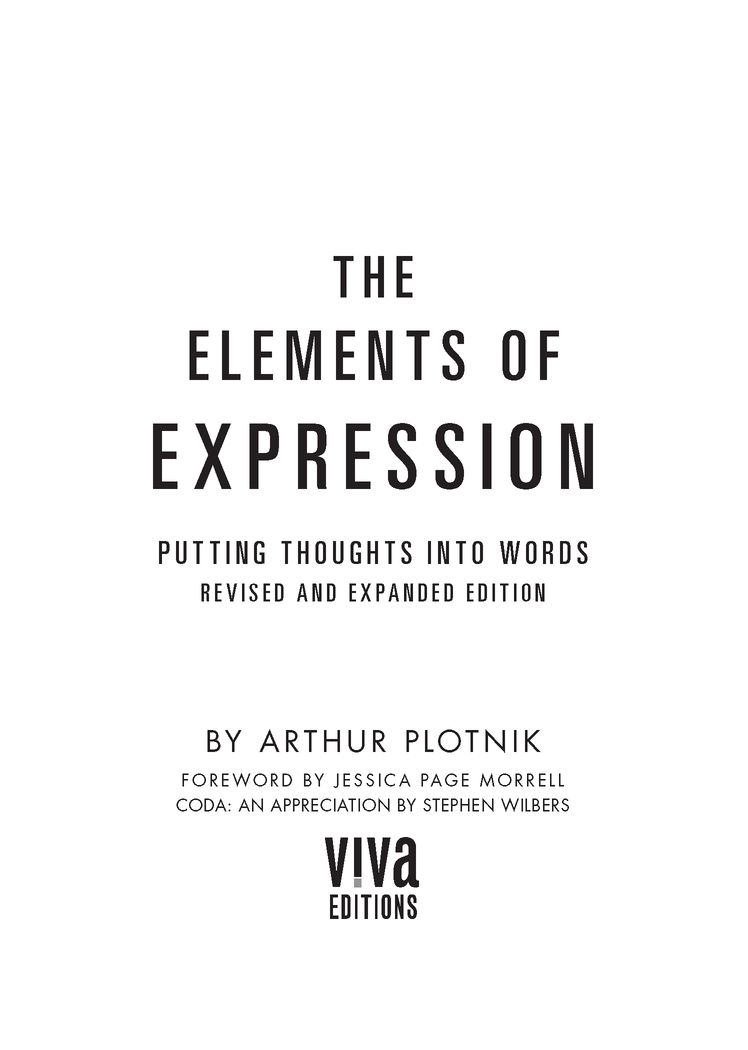Table of Contents
Praise for The Elements of Expression
In The Elements of Expression Arthur Plotnik covers it all: word choice, style, usage, syntax, and the differences between them. Whats more, he does it in a way that is funny and fundamentally helpful. To plunge into the pages of this book is to cast away doubt. Trade your hemming and hawing for a surefooted sense of how to write with power and authenticity. If you, too, suffer from language anxiety, help is on the way. Plotnik delivers a dose of easy-to-digest information that will help you put your thoughts into shimmering words. He takes opaque ideas about writing and rhetoric and puts them in plain English you can understandand use. Id love this book even if I didnt love this stuff. Let The Elements of Expression turn you into a more confident writer, and turn you on to the joy (and relief) of getting whats inside outside.
Constance Hale,
author of Sin and Syntax and
Vex, Hex, Smash, Smooch
I just love this book. Arthur Plotnik is great fun to read, and in The Elements of Expression hes given me hope that the horrible, fruitless fumbling for the right words that torments so many writers neednt be the death knell of nimble, beautiful expression.
June Casagrande,
author of It Was the Best of Sentences,
It Was the Worst of Sentences
With sincerity, humor, and the occasional precision-lobbed grenade, Arthur Plotnik teaches by example in The Elements of Expression. In urging us to shun generic writing and optimize value in our word choices, Plotnik joyfully demonstrates dozens of ways we can abuse English to add interest and tension to dozy proseall without forsaking authenticity and restraint.
Carol Fisher Saller,
author of The Subversive Copy Editor
and Eddies War
This is a perfect book for lovers of language or for anyone who has ever struggled to find the right word to express the nuances of human experience. Plotniks The Elements of Expression is smart and funny and rich with the history of language. This book will help freshen any readers speech and purge it of the well-worn clichd patterns of our time and stale mainstays such as awesome and amazing.
Kate Hopper,
author of Use Your Words:
A Writing Guide for Mothers
Also by Arthur Plotnik
Better Than Great:
A Plenitudinous Compendium of
Wallopingly Fresh Superlatives
Spunk & Bite: A Writers Guide to Bold,
Contemporary Style
The Urban Tree Book:
An Uncommon Field Guide for City and Town
The Elements of Authorship:
Unabashed Advice, Undiluted Experience,
and Unadulterated Inspiration
for Writers and Writers-to-Be
The Man Behind the Quill: Jacob Shallus,
Calligrapher of the United States Constitution
The Elements of Editing:
A Modern Guide for Editors and Journalists
To Mary
Foreword
As someone who writes for a living, I work at trying to riddle thoughts into words. In my darker moments, I admit to the usual writerly hang-ups and worries. Some days my themes seem diffuse, my thoughts ragtag, my sentences lackluster.
But my library, heavy on reference books, has an ace in the hole: Arthur Plotnik. Apparently the man devours a thesaurus with breakfast each morning and an unabridged dictionary as his lunchtime repast. The reissue of The Elements of Expression: Putting Thoughts into Words underlines just why Plotnik serves as a beacon and mentor to so many.
Trying to summarize all the ground this volume covers would be hopeless, but its just what a reference book should be: meaty, thoughtful, layered, and inspiring. As you read along, expect hidden cogs in your brain to lurch into motion and your fingers to twitch, eager to jot down fresh phrases. The author fosters this urge by constantly goading readers to go forth and raid the land for language like modern-day cattle rustlers.
As a culture we are drowning in noise, strange YouTube videos, shtick, tweets, and texts. Plotnik calls it a rock concert-like din of overloaded and understimulated brains. Yet for all those communiqus, potent and bold language can be difficult to find. Politicians and public figures get language wrong all the time. Blogging and social media come preloaded with sloppy tendencies, woeful shortcuts, and a scorn for form. The Elements of Expression shoulders the burden of clarifying how speakers and writers flounder, and why.
Why?
Because humans are prone to tired vocabularies and generic language that mocks our humanity. Plotnik reveals why our sentences sputter: they suffer from the commonness of Standard English corrupted by platitudes, clichs, euphemisms, worn patterns, and pat paradigms: the borrowed and ready-made. We are, he warns, a nation of repeaters. His remedies? Practice the habits of expressive people: read, listen, savor, keep a journal.
Plotnik rollicks with the many influences bouncing around the mediasphere, from reality-show schlock to jock talk, gangsta, Wall Street, mindless patter, and not-so-pithy punditry. Following his lead, we venture into the elements of force, trip along to figures of speech, gape at the dangers of modifiers and plain speech, and linger at the delights of tough talk. Best yet, throughout the book he explains when to break the mold by modeling language that is part voodoo, part whitewater raft ride, part yodel.
The Elements of Expression also rocks advice on delivering the oft-dreaded oral presentation. Plotniks list of The Sins of the Presenters, such as speaking like Fidel Castro, will be depressingly familiar. He offers simple tips for effective public speaking, because the only balance to terror is preparation. His Afterword, on intensity in creative expression, is insightful and rocket fueled. And like everything that comes from Plotniks apparently crowded and word-obsessed mind, its entertaining, sharp, and subversive.
Expressiveness is the goal, Plotnik reminds us. This book explores the vibrant expressive possibilities of English, our mongrel language. Its a why-words-are-important book written by a word lover. Its for serious users and nerds, speechmakers, hopeful beginners, and the grammatically challenged. I plan to read it again and again when Im hungry for language that delights, when my prose needs a wallop.
Jessica Page Morrell
Authors Preface to the Revision
What youre about to find in these pages is the best advice I can give language users for powering up what they say and writeand I mean todays language users, seeking to get across their thoughts, feelings, stories, sermons, pitches, and pleas using todays mind-juddering range of communication platforms.
Now, today might seem a long way from 1996, when this books original version appeared. Since then the world has gone global, mobile, and app-crazy; it has linked, friended, wikid, Yahood, and Googled from here to the back of beyond. But one thing has barely changed over time: how to express, in words, the power of a thought.
And, oh, the energetic thoughts piling up! Every day brings planetloads, aching for language that clarifies, delights, persuades, soothes, tickles, conquers, endears, and overall makes life worth living or infinitely more jolly.


